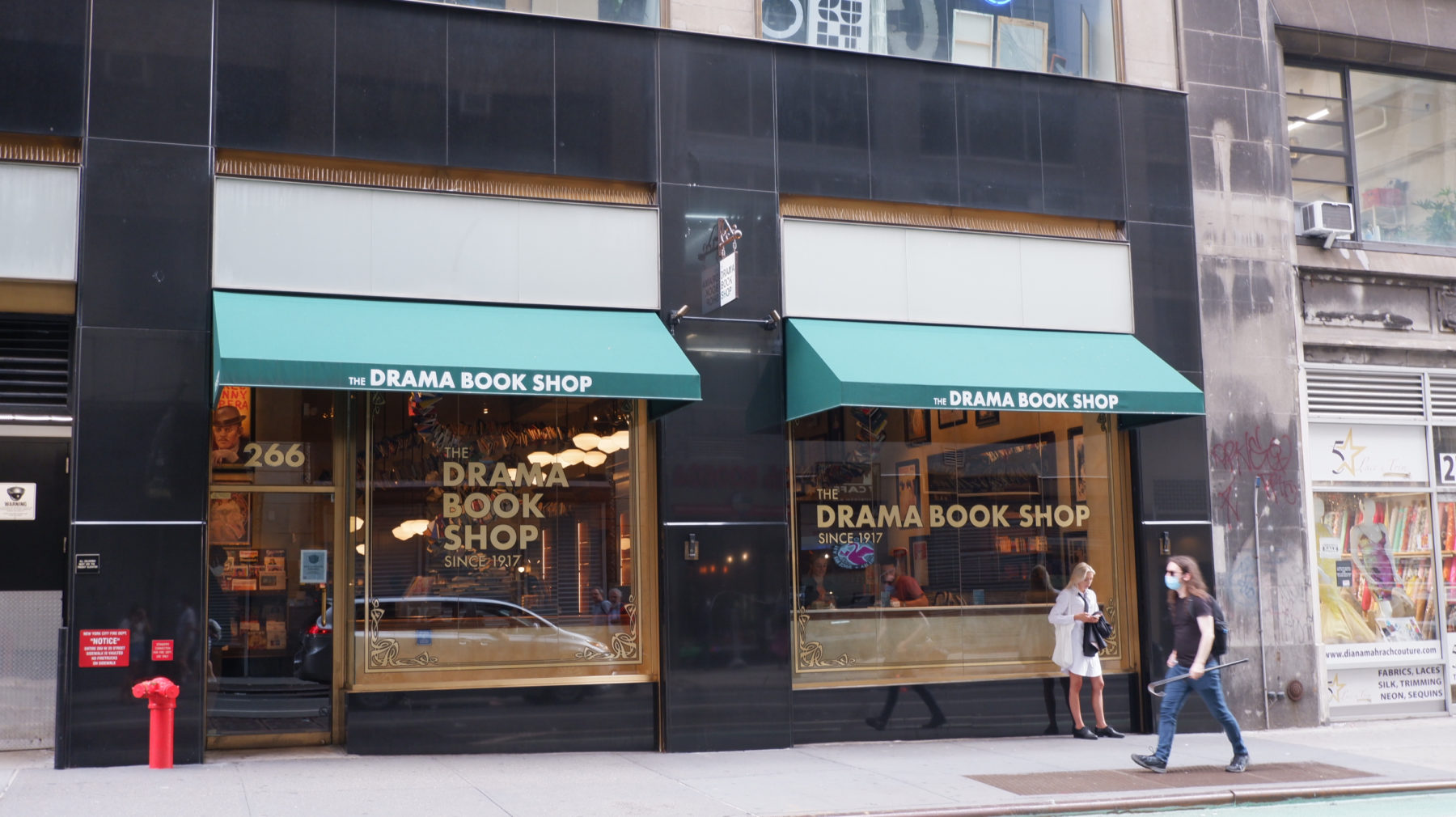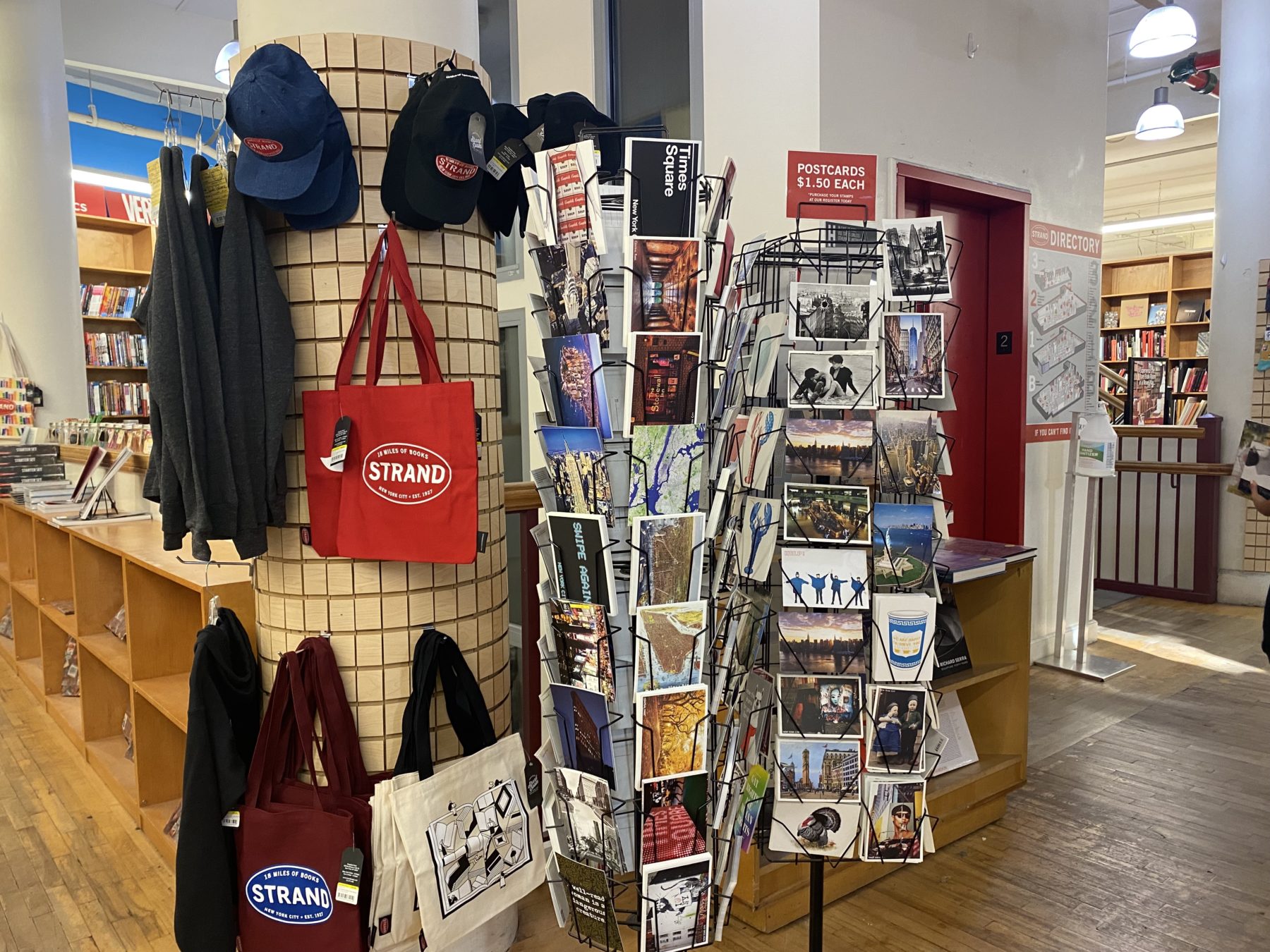
The number of bookstores in Manhattan has been declining for years, but the pandemic has added another layer of stress to booksellers. In Midtown alone, several bookstores have closed in the last five years.
“We have had to close stores because they were so extraordinarily expensive and heavily loss-making,” said James Daunt, CEO of Barnes and Noble in an interview with Columbia News Service.
Owners of bookstores are coming up with unique ways to keep their doors open, from adding cafes to offering employees better benefits. But that might not be enough to combat dwindling book sales, decreased foot traffic, and disagreements over wages.
Bookstores in Midtown decreased from 91 to 72 between 2015 and 2020, according to the Bureau of Labor Statistics. As the COVID-19 pandemic continues in New York City, the number continues to drop.
St. Vartan on West 34th Street was one of the bookstores that closed its physical location.
“Because of COVID-19, we are just taking orders on the website now, and for the time being this is how we will continue to operate,” said Michele Bergerac, director at St. Vartan Cathedral where the bookstore is located.
ReferenceUSA shows that in 2020, 96% of book retailers and dealers in Midtown were small independent bookstores with less than 20 workers. And these establishments rely on customers who want to shop in-person.
“I like buying books in bookstores, because a lot of it is about browsing, about going from one book to another and then you see something that interests you,” said Tim Wilks, a Midtown resident. “When you are buying online it is not as easy to do that.”
Bryan Lei, an engineer who likes architecture books, agrees. “Coming to bookstores is a nice feeling of being in the presence of a lot of books and this will never change,” Lei said.
But even one of the most popular independent bookstores in New York City, the Strand, has struggled. Andrea Klinker, the store’s senior communications associate, said the Strand has 90 employees but is only generating half of the business it had pre-pandemic. Last fall, the Strand launched a social media campaign that brought in over 50,000 book orders in just a few days. “People came and would wait in line for 40 minutes. That was incredible,” said Klinker.
But recovery hasn’t been entirely smooth at the Strand.

Robyn Smith worked there for nine months and was laid off in March 2020, when pandemic restrictions first hit. She was part of the events team at the Strand, which went from five people to one. She was offered her job back in October 2020 but decided not to take it. “That was tough. I really liked working there” she said. Smith is afraid of returning after a New York Magazine article was published this March that quoted her explaining what had happened with the layoffs.
Brett Bates, who has worked there for five years, was laid off in March 2020 and rehired in June of the same year. As a member of a union, Bates said the Strand has internal issues to resolve, including understaffing and laying off senior workers.
Regarding this issue, Bates said that “the company agreed to rehire several of the senior workers who were willing to be back on the job.” He said that several of them could not afford to be unemployed and have found other jobs and resigned. Bates said that the ones who were rehired “were initially brought back with health insurance but at minimum wage and with no union benefits, which means the requirement for them to have discipline and no presence in meetings with the company.” The union representative said that “after the strike authorization vote by the union, the company relented, however, and now our members have their union status and pre-pandemic wage rates.” Finally, he said that the company is planning to lay them off after the holiday season, as they have temporary contracts.
Ned Fortna, 56, is one of these senior workers. He has worked at the Strand for 30 years, but was laid off when Covid-19 hit. Now he is back with a two months contract for the Christmas season, “but they are trying to keep me on,” he said. “It’s good to be back because I did not have much of a purpose, and my unemployment ended in the summer.”
Fortna also explained that while he was not working, he had to pay for the health insurance himself and it was getting expensive. “Last year, they were supposed to bring people back based on seniority, and they did not do that,” he said. Fortna thinks that the reason is that “they want to cut the cost of people who have been there longer and to keep the people who are younger and more energetic. And they see someone like me costs them too much.” But he has hope and said that “so far it’s good, we’ll see what happens.”
Independent bookstores aren’t the only booksellers in trouble. Barnes and Noble, a national chain, has struggled, too. Since the start of the pandemic, the company has had a 25% loss in sales, said Daunt, the company’s CEO, who added that it’s even worse for some specific locations, like the flagship store on 5th Avenue in Manhattan. It reflects a trend in the company’s performance nationwide. Barnes and Noble, with 21,000 employees and 627 stores across the country, laid off 40% of their employees during the pandemic, but Daunt is not planning on those staffers returning.
“We have not rehired those employees, because it is better to have fewer people working, but they need to be much better and be much better paid,” he said.
Right now, Barnes & Noble has four stores in Manhattan, two of which are in Midtown. From 2015 to 2019, they closed 13% of the stores they had nationwide. But Daunt isn’t discouraged by the pandemic. Despite the fact that 20% of the store’s sales are currently online, Daunt said that “Covid does not change what makes a good bookstore and neither has it changed how we need to concentrate on running our stores.”
Smaller independent bookstores are relying on in-person experiences too.
The Drama Book Shop is a small independent bookstore that closed in January 2019 and reopened in June 2021. The reopening was possible thanks to the contribution of Lin-Manuel Miranda and some of his friends from the Broadway play “Hamilton.” With the reopening, the store has changed its location, from West 40th Street to 39th and 8th Avenue, but has chosen to remain in Midtown, near the Theater District.
Kiyoka Son, a customer of The Drama Book Shop, said that “physical bookstores make me think it is worth spending my money. We need bookstores and it is sad that they are closing down.”
Regarding the belief that Amazon is hurting smaller booksellers, the literary scout Leticia Vila-Sanjuán said that bigtime sellers have an edge.
“The U.S., unlike most European countries, does not have a fixed price for books. That means that any competitor can set its own prices and that is definitely a challenge for the bookstore environment and benefits big dealers, such as Amazon, Walmart, and Barnes and Noble,” Vila-Sanjuán said. In the European Union, there is a law that dictates that all books must have the same price.
But that doesn’t seem to be the reality, according to the booksellers themselves. Both the Strand and Barnes & Noble said they don’t see Amazon as a direct competitor. Klinker said the Strand’s strategy is to have competitive stock so that the customer does not have to go to a backup source.
Daunt said in-person events help bookstores. “I think that it is much more difficult for Amazon to compete against physical bookstores that are able to hold events, to have book clubs, where people like to meet,” he said.
Vila-Sanjuán agreed, and said that although Amazon shadow is there, “I don’t think bookstores disappear, because they are a part of the cultural and social life, especially in most big cities and urban areas.”
Some bookstores are getting creative to acquire new customers.
“Digital communication and social media are key,” said Klinker, the spokesperson for the Strand, adding that the store has big online sales and returned to hosting in-person events in July.
We’ve tried out a lot of different versions of events in the last few months, finding flexibility in accommodating our authors and our customers,” said Sabir Saltan, events director, for the store. According to Saltan, their most successful in-person events so far include sold-out tickets for a book presentation with actress and model Emily Ratajkowski and Real Housewives of NYC’s Dorinda Medley. “It was really exciting and a bit emotional to see the Rare Book Room, where we hold these events, full of people again,” Saltan said.
About the author(s)
Marta Campabadal Graus studied journalism in Barcelona and Paris, and now she is a Fulbright scholar at the Columbia Journalism School.



